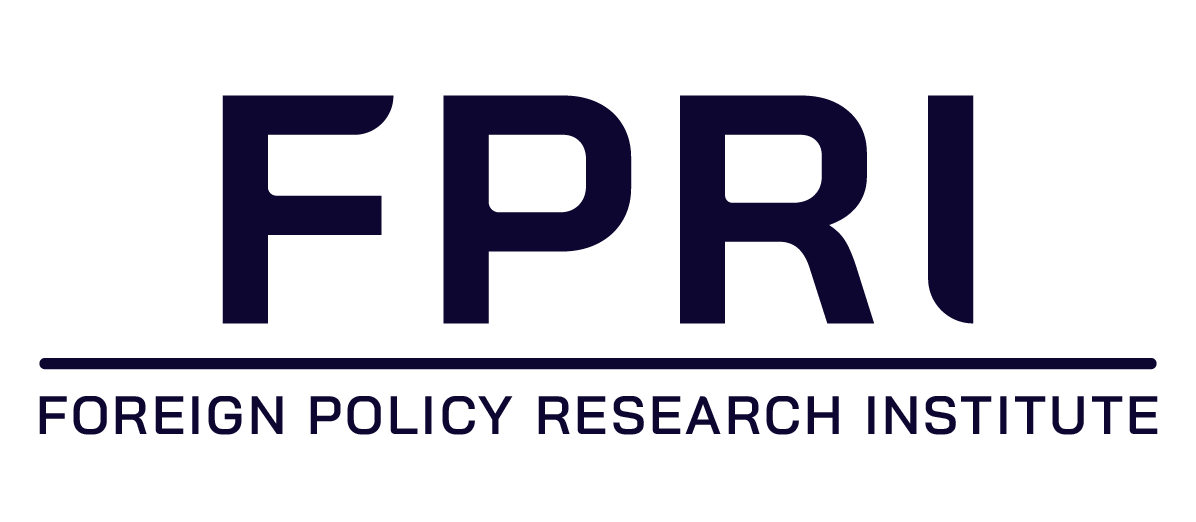A nation must think before it acts.
With a newly elected Congress, there is an opportunity to reinforce the US focus on the Indo-Pacific. As geopolitical dynamics in the region continue to evolve, it will be important for Congress to consider funding and legislative measures that support military and economic engagement in Asia. Strategic investments and actions will play a role in maintaining the US presence and influence in the Indo-Pacific moving forward.
Michael Beckley— Prioritizing US-Asia Relations: A Congressional Agenda
As the United States faces growing challenges, Congress holds a critical responsibility to prioritize and legislate on issues that impact national defense and economic competitiveness. Scholars from the Asia Program at the Foreign Policy Research Institute (FPRI), offer insights to guide congressional decision-making on key priorities. With a focus on missile defense, data security, and transparency, these commentaries underscore how Congress can take decisive action to safeguard American interests in an increasingly complex global environment.
Connor Fiddler emphasizes the urgency for Congress to prioritize funding for missile defense, specifically the Golden Dome initiative, which aims to protect the United States from evolving missile threats. Shannon Vaughn argues that Congress must take action to secure US leadership in artificial intelligence and data by addressing China’s growing influence in this domain. Meanwhile, Aaron Glasserman calls on Congress to declassify intelligence on TikTok, ensuring that decisions regarding national security risks are informed by clear and transparent information.
The Asia Program will continue to provide guidance to policymakers, offering expertise on how Congress can best address these critical issues and ensure that the United States remains at the forefront of defense, technology, and global leadership.
Connor Fiddler— The Golden Dome and the Future of US Missile Defense
As the Department of Defense navigates program cuts, staff reductions, and strategic shifts, it is becoming evident that missile defense will emerge as a focal point for renewed attention and funding. Originally branded as the “Iron Dome for America” during the campaign and now officially recognized as the Golden Dome, the Trump administration has placed missile defense at the forefront of its priorities. Missile defense has historically faced significant challenges in securing executive backing and congressional funding, often due to concerns over high costs, system reliability, and the potential for escalating an arms race. However, as adversaries such as China, Russia, and North Korea continue to expand and modernize their missile capabilities, the need for a robust homeland missile defense system has never been more urgent.
The US missile defense system consists of three components: sensors and radars, interceptors, and command and control infrastructure. Modernizing and expanding these elements are crucial to the success of the Golden Dome initiative. However, the key to the Golden Dome’s success will be extending these capabilities into the space domain. Priority programs for funding will include the Hypersonic and Ballistic Tracking Space Sensor satellite, the integration of space-based interceptors, and the Proliferated Warfighter Space Architecture, all designed to strengthen the US missile defense posture and ensure more comprehensive protection against emerging threats.
The United States currently allocates approximately $9 billion annually to missile defense programs. While upgrading and expanding existing ground-based sensors, interceptors, and command and control systems will demand significant funding, it is the space-based component of the Golden Dome initiative that will require strong congressional leadership and oversight to ensure its successful implementation.
Shannon Vaughn— China’s National Data Marketplace: A Strategic Wake-Up Call for Congress
China’s National Data Administration (NDA) announced a new “national public data resources registration platform,” set to begin trials on March 1. This initiative represents a strategic leap for China in leveraging data for economic and technological dominance. Inspired by the success of DeepSeek, this platform will dwarf the publicly available US training data, eventually providing Chinese artificial intelligence (AI) firms, researchers, and state-linked entities with unparalleled access to what likely will be the largest dataset the world knows. This scale of data aggregation will supercharge China’s AI development, potentially giving Beijing a decisive edge in AI model development. The NDA’s platform launch is a yet another wake-up call—Congress must secure America’s data and semiconductor leadership before it’s too late.
Policy Recommendation:
Congress should act to establish a public-private partnership designed to expand the breadth and accessibility of high-quality, ethically sourced public data while protecting sensitive information. This initiative must:
- Enhance Data.gov other Publicly Available Information (PAI): Invest in scaling data.gov and other PAI datasets with standardized, machine-readable datasets critical for AI research, ensuring accessibility to US innovators.
- Incentivize Secure Data Sharing at Home and Abroad: Provide grants and tax incentives for US private sector data contributions, safeguarded by robust privacy protections. Lead in forming data-sharing partnerships with allies, creating a democratic data ecosystem to counterbalance China’s influence.
- Tighten Semiconductor Export Controls: Strengthen and enforce restrictions on the export of high-end AI semiconductor chips and advanced manufacturing equipment to China. This will help to limit China’s ability to transform massive data resources into cutting-edge AI applications, denying it a critical advantage in AI scaling and deployment.
Aaron Glasserman— Congress Should Declassify TikTok-Related Intelligence
One reason why the TikTok ban has proven so controversial is that there is still no consensus regarding its original premise: that TikTok poses a unique and significant national security threat. The ban has become entangled with a host of other issues, including social media safety, executive authority, and a potential trade deal between the United States and China. Some in Congress have implied that their assessment of the national security threat is based on specific intelligence. Last March, following a briefing organized by the Senate Intelligence Committee, Senator Richard Blumenthal said: “My reaction to this briefing is that TikTok is a gun aimed at Americans’ heads.” On the other hand, Representative Jim Himes, ranking member of the House Permanent Select Committee on Intelligence, who also has access to highly sensitive information, voted against the ban, along with three other members of that committee, including one Republican.
The new Congress has an opportunity to clarify the matter by declassifying the intelligence that apparently helped persuade some legislators that the TikTok ban is warranted on national security grounds. There is already some bipartisan momentum from last year, when Senator Blumenthal and Senator Marsha Blackburn called on the Office of the Director of National Intelligence to declassify pertinent information. Recently confirmed DNI Tulsi Gabbard has advocated greater transparency and might be more open to declassification than her predecessor. Congress could also take matters into its own hands. Intelligence committees in both houses have procedures to declassify intelligence with presidential approval.
Declassifying TikTok-related intelligence would help get voters on the same page about the alleged threat being used to justify a potentially problematic ban. If the TikTok threat is as great as many claim, we need to raise public awareness. If the threat has been exaggerated, we need to hold supporters of the ban accountable.
Image: Adobe Stock



